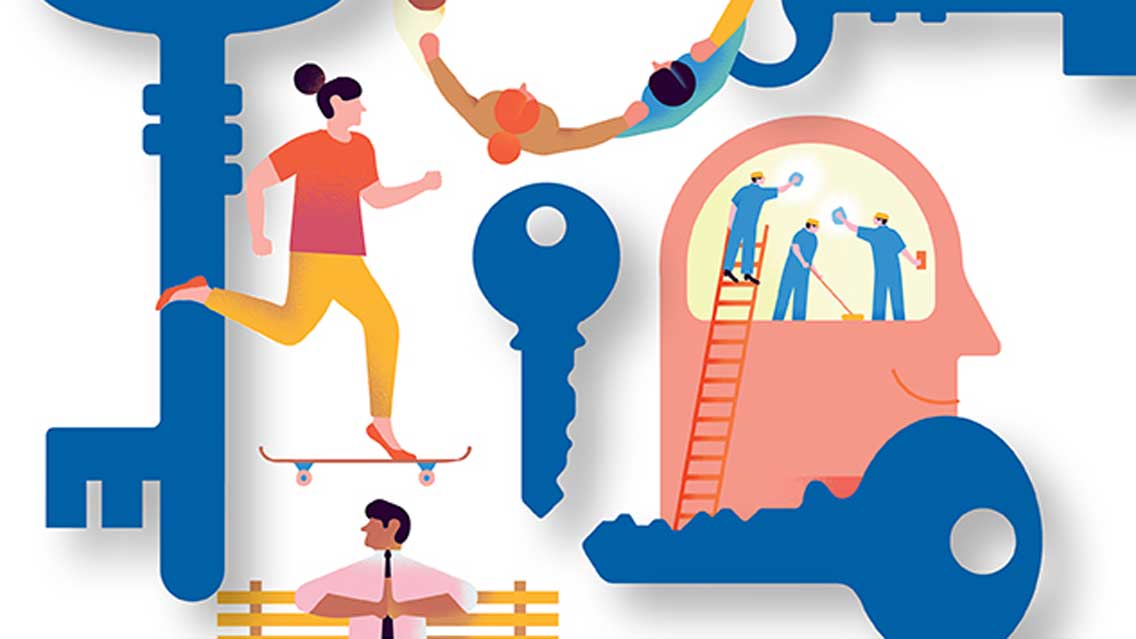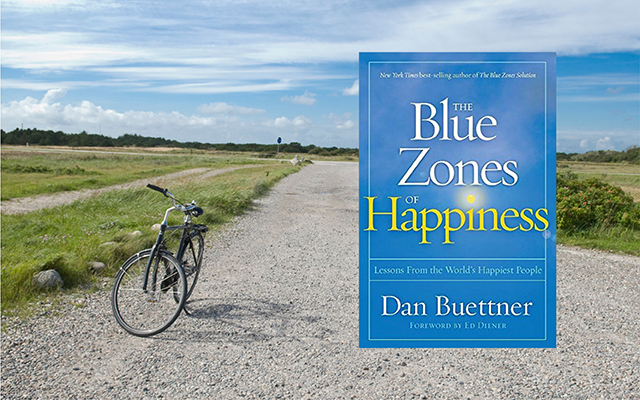Last year I took my husband on a birthday trip to Italy, where I’d long ago spent a single college semester. Hoping to excavate a few Italian phrases from the recesses of my brain, I downloaded some language-learning apps a couple of weeks before we left. I played them in the car and on long dog walks.
Our flight touched down in Rome on a bright, chilly October morning. Groggy, my husband and I trudged through airport customs and found our way to the train information desk. I walked up to the agent and opened my mouth. To my surprise, Italian words emerged. The agent comprehended them. I successfully purchased two tickets to Florence.
Throughout the trip, speaking Italian became easier and easier, until I was swapping compliments with a Roman restaurateur the night before our flight home — and enjoying a dish of rigatoni Bolognese on the house.
By taking steps to become conversational in Italian, I discovered what language researchers and coaches already know: Adults can excel at learning a foreign tongue.
Primed for Learning
You’ve probably heard that children are language sponges. They absorb words and phrases with brains that create neural connections at breathtaking speed, while adults often struggle with new vocabulary, grammar, and pronunciation.
Though it’s true that unused neural synapses are “pruned” away during adolescence, neuroscientists have debunked the notion that our adult brains are therefore limited in capacity. In fact, our neural networks are “plastic,” meaning our environment and experiences — including efforts to learn new information — prompt the formation of new neurons and synapses throughout our lives.
Experts who study language acquisition explain it this way: Young children in multilingual environments acquire languages without conscious effort, whereas adults have to use their brains consciously to learn.
“In many ways, adults are actually better learners than children,” says John Fotheringham, author of Master Japanese and creator of LanguageMastery.com. Adults have developed a mental map of word concepts via our first language. We’ve already learned how to learn, and we understand our own learning styles better than children do.
Plus, we are choosing our new language, rather than being compelled to learn one our parents or teachers selected for us.
“If you’re motivated, you can learn any language, anywhere. It just comes down to some creativity, a little hard work, and leveraging technology,” says Fotheringham.
Bilingual Benefits
There are plenty of reasons to feel motivated. For one, people who speak multiple languages are more successful than monoglots at performing mental tasks involving decision-making and conflict resolution. Bilinguals constantly engage both languages to some degree; continuous linguistic processing is thought to contribute to more robust cognitive abilities.
“When you’re speaking French, you have to inhibit English, which means your brain has to engage executive-function, or advanced cognitive-control processes,” explains Viorica Marian, PhD, a professor of communication sciences and disorders at Northwestern University. “By virtue of doing this any time you use language, your brain is working and being more active than it would otherwise.”
This may explain why speaking more than one language can enhance cognitive function. A 2012 review published in the journal Cerebrum suggests that bilingual people exhibited better memory, visual-spatial skills, and creativity. There are “attention and aging benefits” too, notes Marian, and these “aren’t exclusive to people who were raised bilingual; they are also seen in people who learn a second language later in life.”
In addition to shoring up brain health, bilinguals can expand their opportunities to enjoy life. Marian cites the potential pleasures of stronger interpersonal relationships, deeper cultural awareness, richer travel experiences, and a broader worldview.
“There are very few other experiences that can have such a range of consequences, so far-reaching, across all aspects of life,” she says.
Fotheringham conjures the image of an iceberg, with more than 90 percent of its structure underwater. “If you travel to another country as an English speaker, you’re seeing just what’s above the water,” he says. “If you learn even a tiny bit of the other language, you have scuba gear and you can go beneath the surface.”
A second language also introduces us to novel concepts and ideas. For example, Spanish contains words for emotions that don’t directly translate into English, explains Jeanette Altarriba, PhD, a professor of psychology at the University at Albany, State University of New York, and coeditor of An Introduction to Bilingualism: Principles and Processes.
“One of my favorites is cariño, which is loosely translated as something between ‘liking’ and ‘affection,’ but neither word truly captures its conceptual meaning,” she explains. “Another one is simpatía, which loosely means ‘accord,’ ‘agreement,’ or ‘harmony,’ but again, no single English word captures its true meaning in Spanish.”
Having access to multiple vocabularies gives us greater capacity to consider possibilities and express ourselves. “The language is just a vehicle to transmit an idea,” Altarriba says. “If I have these other languages, I have new ideas and new concepts.”
Fotheringham agrees. “It’s a new lens for the world. Each language you learn is a new world. You start thinking differently.”
Talking Tips
Whether you’re ready to brush up on your high school German or pick up a new language altogether, consider the following expert advice.
Begin with listening. Seek out music, TV shows, movies, or videos in the target language. If you’re a foodie, watch cooking shows. Sports enthusiast? Find televised matches with foreign-language commentary.
By listening, you acquaint yourself with correct pronunciation and expressions. “Your brain needs to get used to the sound of the language,” says Susanna Zaraysky, author of Language Is Music.
Engage your other senses, too. Sensory experiences encode memory more permanently in the brain, making new knowledge easier to retain. If you’re learning Spanish, for example, you could visit a Peruvian restaurant and breathe in the scent of ceviche while practicing your pronunciation of items on the menu.
Or engage your whole body, as language coach and author John Fotheringham did, by learning aikido or kendo from a Japanese-speaking martial arts expert. “Do activities you already love,” he says, “but in the target language.”
Be fearless, not perfect. Language is like a sport: You have to do it to learn it. The key is to speak before you think you’re ready. “The first thing you have to get over is being a perfectionist,” Zaraysky says.
Visit neighborhoods where native speakers live — perhaps a Little Italy or Chinatown — and speak up. Use resources such as Meetup, Facebook, or Craigslist to find others who want to practice speaking. Or sign up for Babelvillage or other online language exchanges and partner with people who can help you learn their language while you help them learn English.
Finally, don’t take yourself too seriously. “You have to allow yourself to be a fool, make a mistake, let people laugh at you,” says Zaraysky. Have fun!
This originally appeared as “New Languages, New Horizons” in the June 2018 print issue of Experience Life.




This Post Has 0 Comments